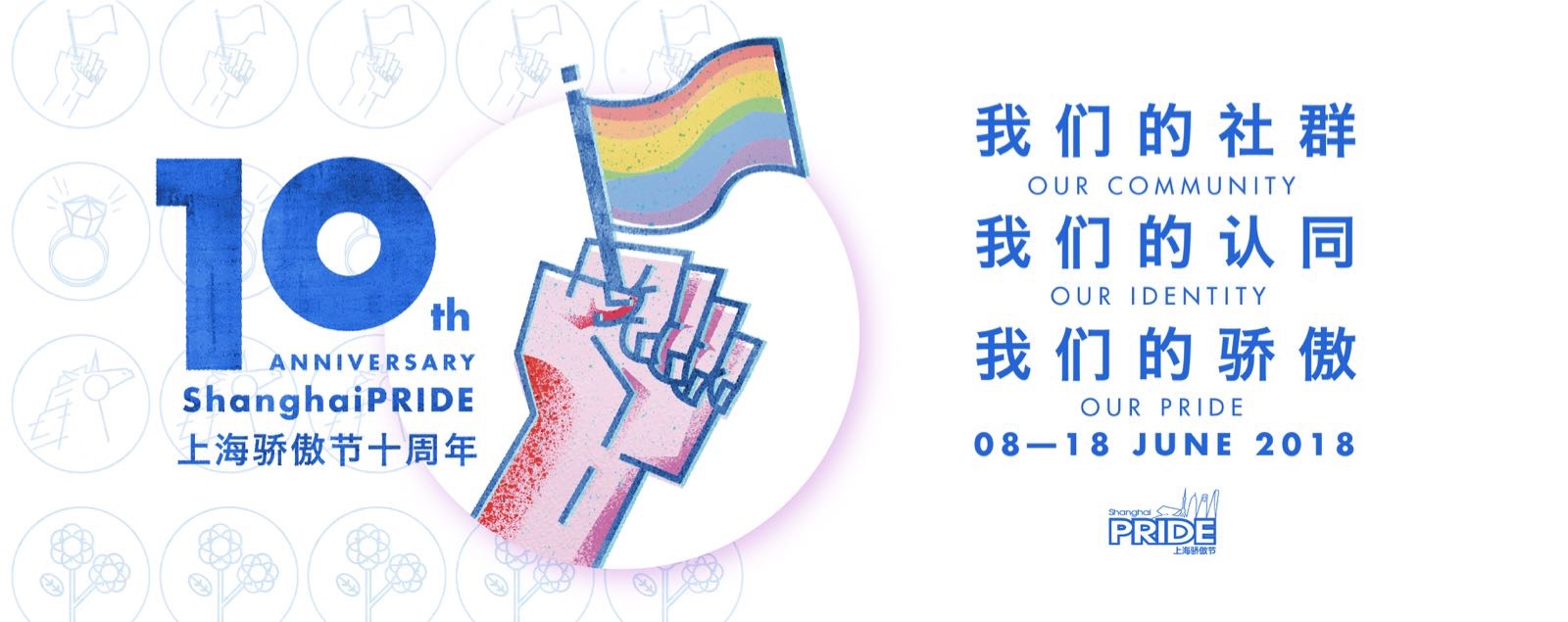Presenting an Award-winning Film
The short film
Losing Sight of A Longed Place
will be showing
with other selected short films
at ROXIE tomorrow!
The short film Losing Sight of a Longed Place just won the 45th Golden Horse Award for Best Animated Short Film. It will also be screened at ShanghaiPRIDE Film Festival. We met with the director, Isaac and talked about the film and LGBTQ community.
1. Does the title of the film has any specific meanings?
Isaac: The meanings of the Chinese and English titles we made for the film are slightly different, but they are both revelations of the emotional nuances of our main character. In Chinese, the first two characters of the title, “Dark Room”, means the status before coming out, inside a dark and cramped closet, and the later two characters “Night Sky” is a reference to a scene in the film when the boy lighted a match, which represents his burning desire to reshape this society, “a single spark can start a prairie fire”, it is fairly idealistic. On the other hand, the English title “Losing Sight of a Longed Place”, was named after our wish for the progress of LGBTQ rights in Hong Kong. Many would say Hong Kong is now already a very international cosmopolitan city, but in fact its traditions have not really changed that much, it is still a pretty conservative society for the LGBTQ community. Hong Kong is not really supportive to many of its own local LGBTQ activities, and we do not find this situation somehow promising.
2. What inspired you to produce this film in the first place? If the story was adapted based on true stories, is there anything special you want to mention during the story-writing process?
Isaac: The inspiration of these stories was from when I interviewed ten of my gay friends. They all had really fascinating stories to share, but because of the film’s duration limit, we picked Weiwei out of everyone as a representation. His story had really symbolised the life path of being gay that we tried to express for our work. I was really lucky to have met Weiwei for the leading role in the film. His father disapproved of his gay identity, but he kept the dignity to himself, still worked relentlessly to help the community. He thinks if we quit so easily because of all the inevitable frustrations, nobody would be fighting for this course.
3. Anything interesting you had run into during the production process? What is your biggest challenge so far?
Isaac: It was really a challenge that the way we try to limit the length of film to 7 minutes. We’ve thought through a lot about the dialogues when we were writing them. We preferred a stronger sense of cinematography initially, and the dialogues were really not that of priority. I mean, you got to have dialogues somewhere within the picture, and some places not. It was really more of a matter of being appealing to the audience. We put a lot of thoughts into that.
4. Was the film entirely produced by hand-drawing? How did you guys come up with this way to present the images?
Isaac: Actually, people were already doing that a lot internationally to create animation-based films. It just has not been that prevalent in Hong Kong film-making. Animation could effectively do its job in telling a story as good as the traditional ones. We have tried to embed and incorporate loads of symbolic elements into the pictures. Some of the pictures in there were hand-painted by Weiwei and his dad, but some of them, the ones with black, white, and yellow rooms were rendered on computer. We used this technique because we really liked it. We have tried to incorporate some traditional animation-creating methods, but we were really not that sophisticated enough, so we decided to go by simple routines for expressions, our strong emotions. We tried to keep the film down to a hand-painted feel though, by insisting on using only basic and natural brush tools.
5. Have you considered for a sequel or a new episode yet? Would your future plan still be a focus on LGBTQ-related issues?
Isaac: We have not thought about any of this yet. I guess we need more time to come up with new ideas through the course of life. For now, we are continuing to submit our work to more other festivals and contests, so updating the film is really out of plan for now. But if maybe after 3 or 5 years, we could still have Weiwei back if we are lucky, I personally would very much like to continue this film.
6. Your film had won the 45th Golden Horse Award for Best Animated Short Film. Congratulations! How did you feel?
Isaac: It stroke me by surprise. It had already been an absolute shock when we made it into top 5. As we have just graduated, and we took the Golden Horse Award with this graduation project, it is absolutely a dream to us. We would really like to thank a lot of people who have helped us on the film.
7. Your story was not only a discussion of gay identity and struggles, but also a critique to the broader context as in stagnated social progress and intense intra-family relationships. What’s your take on the LGBTQ awareness of the public so far?
Isaac: It is really a broad topic. About family, in Hong Kong, the views of the older generation is quite traditional. Like Weiwei’s dad, he cannot accept his son’s gay identity at all. He have never even considered such possibility, but maybe the time will tell. Hong Kong seems like a big metropolitan city, but it is actually under a fairly conservative social atmosphere. So will Weiwei’s voices were being heard by the many? We do not know.
8. Tell me what’s your point of view on the matter of coming out? What do you think that has made this issue so difficult?
Isaac: You have a lot to consider before doing that. Many of my friends are coming out only on their WeChat moments, but not to their families. There are a couple of my friends that have families that are relatively acceptive about their sexual identities, but also we have situations like Weiwei whose families are totally intolerant. Everybody’s situation is different. So my suggestion is if you feel afraid of coming out, why not just accept that feeling of fear, tell yourself it is never meant to be easy.





